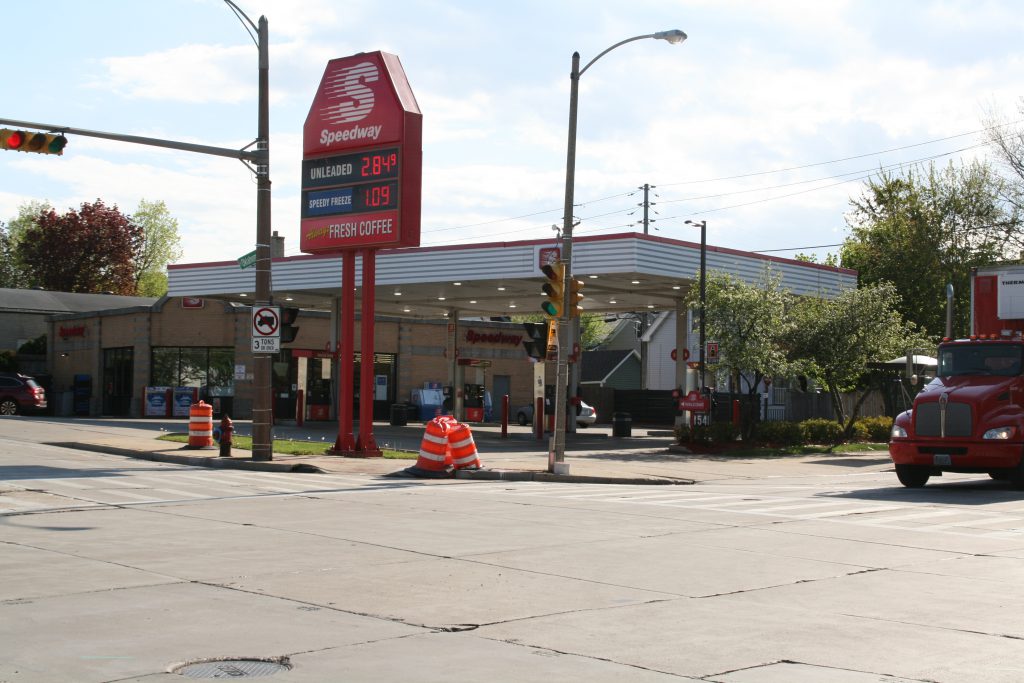Will Gas Stations Adapt for Electric Vehicles?
All the city news you can use.
Every day at The Overhead Wire we sort through over 1,500 news items about cities and share the best ones with our email list. At the end of the week, we take some of the most popular stories and share them with Urban Milwaukee readers. They are national (or international) links, sometimes entertaining and sometimes absurd, but hopefully useful.
Poor curb management is costing cities billions: Most cities around the country are focused on the analog curb which focuses predominantly on parking. But they aren’t pricing it based on actual value and inadequately enforce regulations. But if they were to focus on the digital curb, which is multimodal, flexible, and used by all types of vehicles and commerce, it’s possible to solve for demand throughout the day and create value for all. (Chrissy Mancini Nichols and John Dorsett | APA Planning Magazine)
The mystery of small grocers: Mystery of small grocers: Small groceries are far too rare in the United States, even though many communities would greatly benefit from having a variety of cheap, fresh food within walking distance to their homes. Thanks to zoning and permitting that discourages retail in residential areas, roads that are made for driving everywhere and high prices for inventory, small groceries have the odds stacked against them. (Bonnie Kristian | The Week)
How cities will fossilize: David Farrier dives deep into the geology of urban spaces and how cities will be submerged and preserved once our societies fade. The article explores how building weights and materials combined with types of land, water and geological processes will create fossils of our urban spaces, not to mention the stories our landfills, cars, and tech castoffs will tell. (David Farrier | BBC)
Gas stations will have to adjust to electric vehicle future: The EV revolution means that convenience stores that sell gas to car drivers will have to adjust or be pushed out of the market. Charging for electric vehicles is in higher demand than ever, and the gas station model doesn’t work for electric vehicles that currently take upwards of two hours to fully charge depending on the charger. With more electric demand on the horizon, the smart convenience store owners are looking towards charging, not pumping. (Scott Sturgis | Philadelphia Inquirer)
Alissa Guther contributed to these summaries
Quote of the Week
I was surprised at the extent to which reductions in household size drove increases in total energy demand and emissions. This is a demographic trend which is very likely to continue, and this brings up important questions about what types of homes we need to be building now, and for who?
–Peter Berrill, a graduate student at Yale School of the Environment, in Anthropocene discussing his surprise at how much household size drives emissions.
This week on the podcast, Dan Nissenbaum, CEO of the Low Income Investment Fund, joined us to talk about Liif’s work in childhood education, housing, and community development.
Want more links to read? Visit The Overhead Wire and signup.
Urban Reads
-
Congestion Pricing Cuts Air Pollution in New York City
 Dec 14th, 2025 by Jeff Wood
Dec 14th, 2025 by Jeff Wood
-
We Think We Love to Drive. But Do We Really?
 Dec 7th, 2025 by Jeff Wood
Dec 7th, 2025 by Jeff Wood
-
Can Scott Wiener Tackle America’s Housing Crisis?
 Nov 23rd, 2025 by Jeff Wood
Nov 23rd, 2025 by Jeff Wood






















